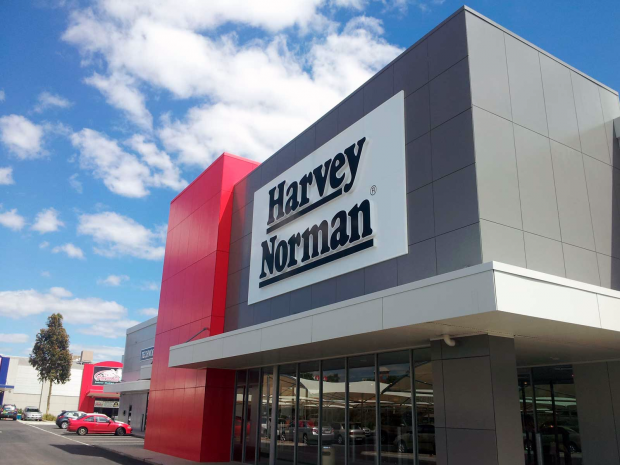 Strong retail spending in a buoyant housing market has helped furniture and electrical goods retail heavyweight Harvey Norman make a record first-half underlying profit.
Strong retail spending in a buoyant housing market has helped furniture and electrical goods retail heavyweight Harvey Norman make a record first-half underlying profit.
Excluding net property revaluation adjustments, underlying profit before tax for the six months to December 31 jumped 20.6 per cent to $290.5 million, representing the best first-half trading result in the group’s 30-year history.
Meanwhile, a seven per cent lift in sales revenue to $976.3 million at company-operated stores and a $54.5 million property revaluation gain helped push up the company’s net profit for the six months to December 31 by 38.7 per cent to $257.3 million.
And despite the supposed downturn in consumer confidence and spending abounding in Aussie retail, co-founder and executive chairman Gerry Harvey said the result reflects an economy where retail spending, particularly in NSW and Victoria, is above decade averages.
“It is underpinned by housing sector activity, lower unemployment and the wealth effect from higher home prices,” he said. “With respect to housing activity, housing finance commitments, one of the key elements supportive of home and lifestyle retail spending, are positive in comparison with decade averages, although outside the eastern states there has been moderation from levels of one year ago.”
Harvey Norman, like smaller rival Nick Scali, has benefited from strong demand for furniture and electrical goods, while the broader retail sector is under pressure from increasing competition.
Harvey Norman, which owns the Domayne and Joyce Mayne retail chains, had 87 company-operated stores and 193 franchised complexes in Australia at the end of December.
Franchisee half-year sales revenue of $2.86 billion was up 5.2 per cent from the previous year’s $2.72 billion.
Norman said that integrating retail, franchise operations, property and digital has helped the company adapt to the evolving retailing environment.
“Our franchisees’ dominance in the home and lifestyle categories and early recognition of the potential of the Internet of Things and connected devices has seen franchisees really capitalise on consumers’ passion and demand for technology,” he said.
“Housing continues to be robust and franchisees’ large-store formats and tech- savvy staff have been able to showcase the integration of home lifestyle and technology that is really exciting consumers,” he said.
Access exclusive analysis, locked news and reports with Inside Retail Weekly. Subscribe today and get our premium print publication delivered to your door every week.





